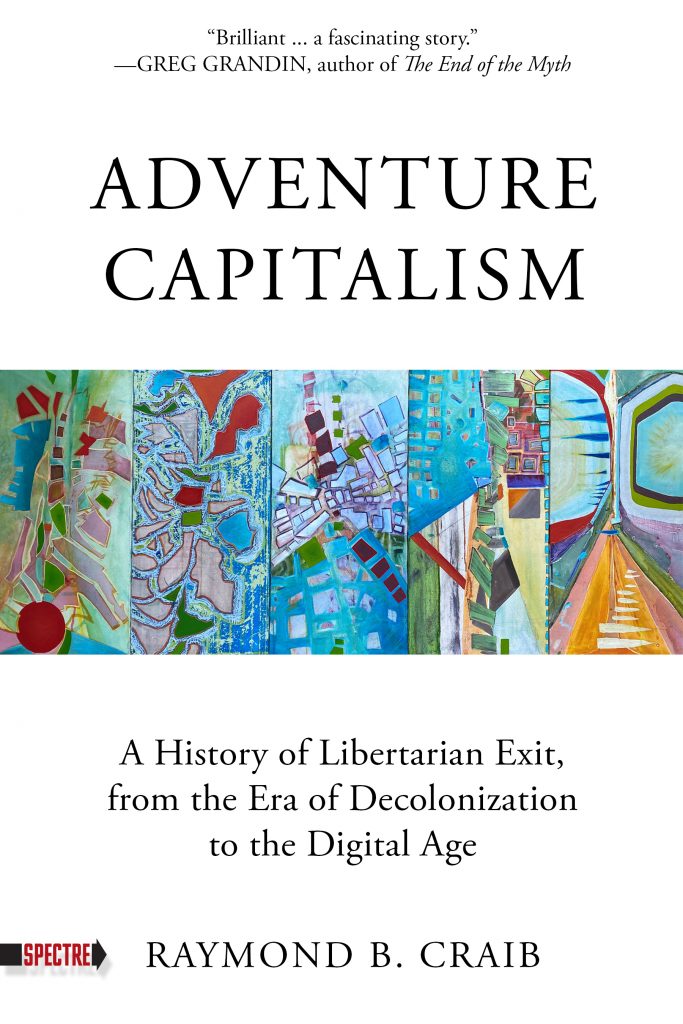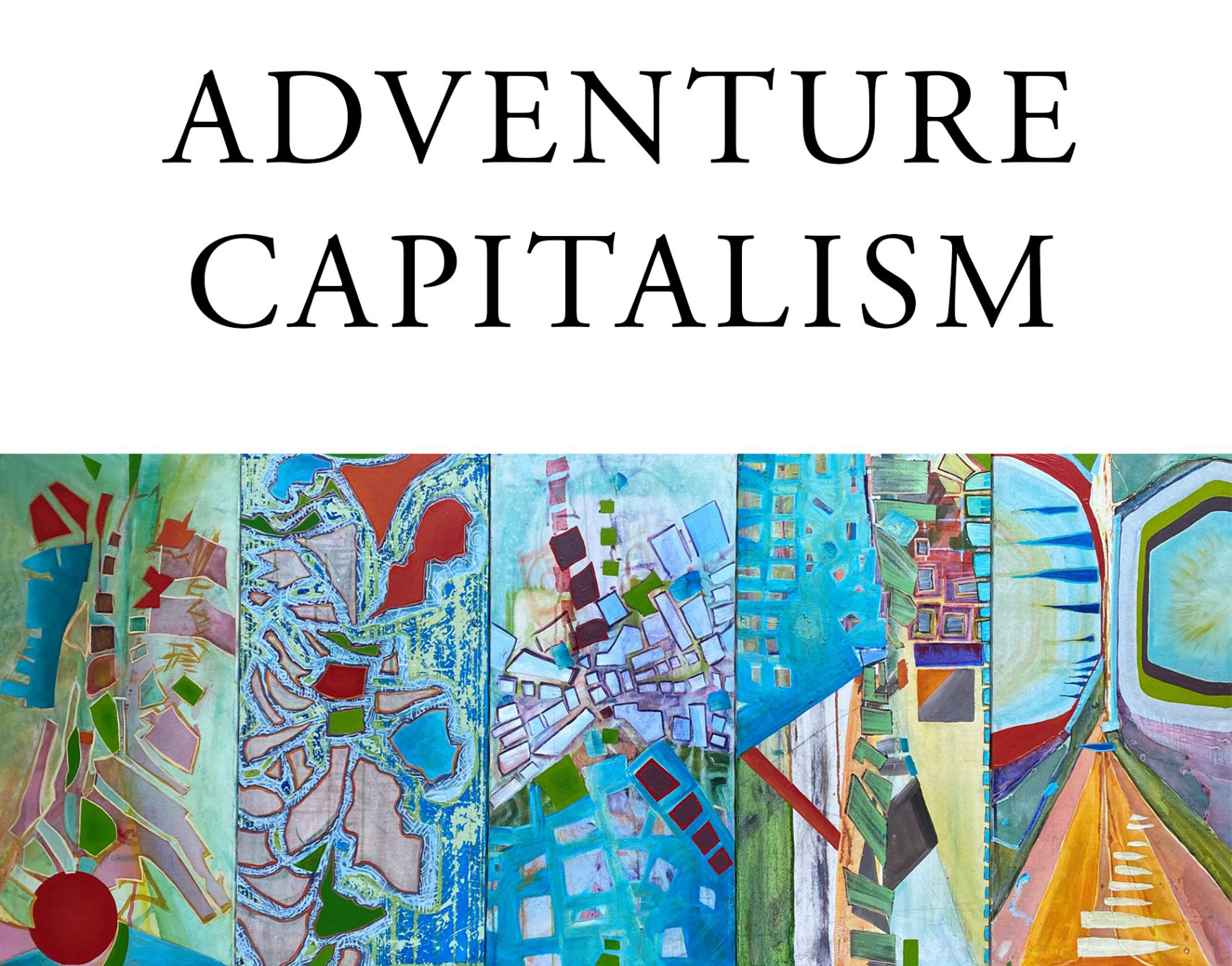By Jacob Bruggeman
The Nation
August 1st, 2022
Imagine if Ayn Rand had written a novel that imported the basic attitudes and ambitions from her famous protagonist John Galt into a steel-willed detective who gallivanted around the Caribbean in an attempt to turn a coup d’état into the stateless society of tomorrow. Her protagonist would probably resemble a collage of the real-life adventurers, financiers, ex–CIA agents, abject European nobles, and gunsmiths who mounted several profit-driven attempts at “exit projects,” or plans to create stateless and market-oriented micronations in the decolonizing world of the late 20th century. In his new book, Adventure Capitalism: A History of Libertarian Exit, from the Era of Decolonization to the Digital Age, author and professor of history Raymond B. Craib demonstrates how Rand’s vision of “Galt’s Gulch,” the libertarian safe haven in Atlas Shrugged, actually served as a source of inspiration for so-called exit projects. But unlike Rand’s bestselling novel, every exit project has flopped.
The repeated failure of these projects, from immigrant Michael Oliver’s attempt to create a micronation on the Minerva Reefs, to Peter Thiel’s Seasteading Institute, will likely prompt readers of Adventure Capitalism to nod in agreement as they learn that Murray Rothbard, don of radical libertarian theory and an inspiration for Oliver, derided exit projects as “cockamamie stunts.” Rothbard instead advised the founders of would-be micronations to “come back to the real world and fight for liberty at home.”
Few heeded Rothbard’s call to check the aspirations of political imagination with a dose of political reality. Peter Thiel, for example, took the position that the libertarian project requires “an escape from politics in all its forms.” In contrast to Rothbard, as well as thinkers like Friedrich Hayek, who advised that the work of liberation reform should be made through society’s existing channels of governance, and saw freedom as less of an ideal state than a shifting equilibrium between the market’s emergent order and a minimal government, Thiel now proposes a wholesale abandonment of the democratic project. Forget improvements forged at the intersection of coalitional interests, like the growing YIMBY movement. The real solution, according to the Startup Societies Foundation—“the Center for Decentralized Governance”—is withdrawal: “Don’t argue. Build.”
What should we make of exit projects, past and present? I spoke with Craib about this question, the paradoxes these projects contain, colonialism, and the way the sea represents freedom. The following conversation has been condensed and edited for clarity.
—Jacob Bruggeman
Jacob Bruggeman: Gunsmiths, CIA agents, the Koch brothers, Southern segregationists, the kings of Pacific islands nations. This is a small sample of the characters included in Adventure Capitalism. It’s a motley crew connected by what you explain as attempted libertarian “exit projects.” What were these ventures and who pursued them?
Raymond Craib: “Libertarian exit” is the phrase I use to designate a set of projects, pursued by various individuals in the wake of World War II, to escape or exit the nation-state by creating new countries organized almost entirely through contractual, market relations. The 1960s and the 1970s were decades in which such projects proliferated. Inspired by Ayn Rand, Ludwig von Mises, and Friedrich Hayek, the individuals who pursued such projects can fairly be described as libertarian in the midcentury American sense: they were hyper-capitalist, opposed to the regulatory and welfare state, radically individualist, and equated freedom with private property rights. They were not, in other words, libertarian in the classical sense (i.e., anarchists).
These individuals experimented with an array of projects, most of which took place either in the ocean or on islands or archipelagoes that were struggling to be free from colonial rule. The figure I focus on most closely is Michael Oliver. Oliver was born Moses Olitzky in Lithuania and was the only member of his immediate family to survive the Holocaust. He arrived in the US as a young man in 1947 and established himself in Nevada, where he soon achieved success as a land developer and coin dealer. In the 1960s, he feared the US was turning toward totalitarianism, and he wrote a book called A New Constitution for a New Country, in which he laid out the rationale and plans for exiting the country. Between 1970 and 1980 he tried repeatedly—with the aid and support of various libertarians, including University of Southern California philosophy professor John Hospers, Ayn Rand’s acolyte and lover Nathaniel Branden, investment guru Harry Schultz, and investor John Templeton—to bring his dream to fruition. He first tried to build an island on the Minerva Reefs in the southwest Pacific, between Tonga and New Zealand, then linked up with former OSS and CIA agents in an effort to colonize the Abaco islands if the Bahamas, which were slated for independence, and then helped foment a secessionist rebellion on the island of Santo in the New Hebrides. In each case, these efforts came to naught, but they wrought havoc in the regions where they were undertaken and upon local populations, all of which were in the process of decolonizing.
JB: Part of what I find fascinating about your book is the way you describe Oliver and his international milieu within a midcentury cultural imagination. When you introduce us to the plot to execute a coup on the Caribbean island of Abaco, for example, we encounter Oliver and seven others. You describe them in a scene that evokes the hard-edged masculine tension of a spy novel or Tarantino flick. Your concept of “libertarian noir” is rather suggestive on this score. Perhaps more than profit, and certainly more than their professed aims of promoting freedom, these guys were simply playacting as James Bond. What other work does this concept do for you in the book?
RC: I appreciate this question. One of the book’s working titles was “Libertarian Noir,” which gives you a sense of how central I see the concept for making sense of the figures I examine. (Another working title was “Any Distant Archipelago,” which I use in another chapter and captures another through line in the book regarding islands and oceans.) My use of noir probably was less about identifying their James Bond cosplay inclinations—although there certainly is a bit of that, particularly with Mitchell Livingston WerBell—than about trying to draw attention to the paradoxes of the projects themselves. I think of noir fiction, in particular, as characterized by moral ambiguity, cynicism, paranoia, and a kind of bleakness…all of which are apparent in the chapter on Abaco in particular. I wanted to highlight this because there is a paradox in all of this: Michael Oliver—perhaps the “private eye” in this if you pursue the metaphor—adamantly argued that creating a new country was part of a “moral experiment” to create spaces of individual freedom against what he saw as an encroaching tide of totalitarianism. And yet in that pursuit he found himself allied with an array of people who were morally ambiguous at best, cynical and driven by profit-seeking, paranoid about the threat of communism, and who trafficked in violence and illegality. There is a bleakness to the history—corruption, capitalism, racism, colonialism—and at the same time, no real resolution to it. So certainly the James Bond aspects of it are real enough, but with noir, I really wanted to stress this violent undercurrent that seemed to run through a project described as a “moral experiment.”
JB: And part of what makes this history bleak is how easily Oliver and his allies pass off reconstituted colonial relationships as innovative projects in liberal statecraft, and that Oliver and co were either high enough on Ayn Rand to be blind to the bald-faced extractive quality of their schemes, or that they simply didn’t care.
But let’s put motive aside for a moment, because I think this is directly related to your reference to “Any Distant Archipelago.” Oliver’s “moral experiments” dovetailed with a view of earth’s bodies of water as worlds unburdened with state structures. But the ocean does appear in our history and culture as a symbol of freedom. Scholars like Markus Redicker and the late Julius Scott trace its historical significance in this regard. How do the exit projects you study fit within—or stand outside—the histories that give the ocean this association with freedom?
RC: The phrase “any distant archipelago” comes from the Marxist dissident Victor Serge, who wrote in the early 1940s of how the ocean had long been a place of refuge for the hunted and persecuted. He goes on to say that such was no longer the case in the 20th century and that the “urban labyrinth” was a safer place for refuge than “any distant archipelago.”
I like the quote because it gets at both the possibilities and limits of thinking about ocean and island spaces as refuges from the state. The ocean has always offered a paradoxical freedom: One could find the hydrarchy discussed by [Peter] Linebaugh and [Markus] Rediker, but also the slave ship so powerfully explored in another of Rediker’s books; the freedom of laissez-faire in the age of sail was also the freedom to traffic in others’ bodies and unfreedom, as Greg Grandin eloquently shows in Empire of Liberty. And of course, to return to the quote from Serge, what was once a space of liberation can just as quickly become a space of exploitation.
Freedom is a social condition that produces space, rather than a space per se. This is why in the book I draw a sharp distinction between libertarian exit and the forms of escape associated with, say, maroon communities of formerly enslaved peoples or the Zapatistas of Southern Mexico. Form should not be privileged over content, and there is a problem with seeing these as somehow comparable political projects.







